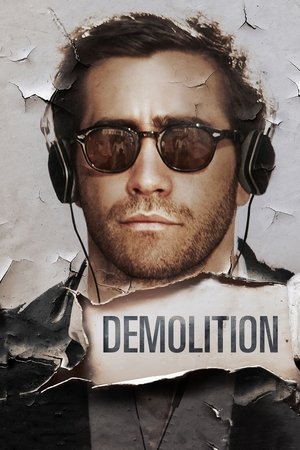
Demolition
Early on in Demolition there is a brief but interesting scene. Davis Mitchell (Jake Gyllenhaal) is looking in a mirror, crying the way bad actors do – i.e., contorting the face to compensate for the inability to produce tears. Gyllenhaal is of course far from a bad actor, and sure enough, Davis immediately regains his composure. Was he rehearsing? Quite possibly, especially when you consider that he seems more concerned with the faulty vending machine in the hospital hallway than the fact that his wife Julia (Heather Lind) has just died in a car accident. But Davis is not a heartless bastard; he simply finds it easier to depend on the kindness of strangers. For example, the letter he writes to the vending machine company, which quickly becomes a confessional epistle, and gives us a clue to his impassive reaction to Julia's death. In contrast, Davis is unable to relate to Phil Eastwood (Chris Cooper), Julia's father. As usual, Cooper delivers the goods, in particular an emotional speech about how there is no word – such as ‘orphan’ or ‘widower’ – to describe someone who has lost a child. Ironically, while we've been fascinated by Cooper's craft, Davis’s mind has been wandering, trying to discern why the drinks are so expensive at the restaurant where they're at, without taking the slightest notice of a single word his father-in-law has said. Meanwhile, the letters he will continue to write to the vending machine company customer service department become his main outlet. In a delightful plot twist, Karen Moreno (Naomi Watts), the company's only customer service rep, has been moved to tears by Davis's missives, and begins talking to him on the phone. Davis is certainly an intriguing character, and to develop him Gyllenhaal has borrowed from others as well as himself. Davis is outwardly a vain, aloof yuppie like Christian Bale in American Psycho – although instead of dismembering people, he takes apart machines, not bothering to put them back together again. At the same time, he undergoes an inner transformation that is a combination of Kevin Spacey's in American Beauty and Ron Livingston's in Office Space. Also, Davis becomes the opposite of Gyllenhaal's character in Moonlight Mile. Unfortunately, Demolition loses momentum in the second half, with director Jean-Marc Vallée putting the plot on autopilot. Davis and Karen's relationship is perfect when limited to letters and phone calls, but goes awry as soon as they meet in person. Additionally, and completely out of the clear blue sky, Davis is diagnosed with a rare medical condition that results in part of his heart being apparently eaten by “gypsy moths.” The hell?. All things considered, Demolition feels familiar, and we can recognize elements we've seen elsewhere, but while some of it is clichéd, the outside-the-box use of some of those familiar elements is in itself refreshing; furthermore, Gyllenhaal provides another stellar performance.
